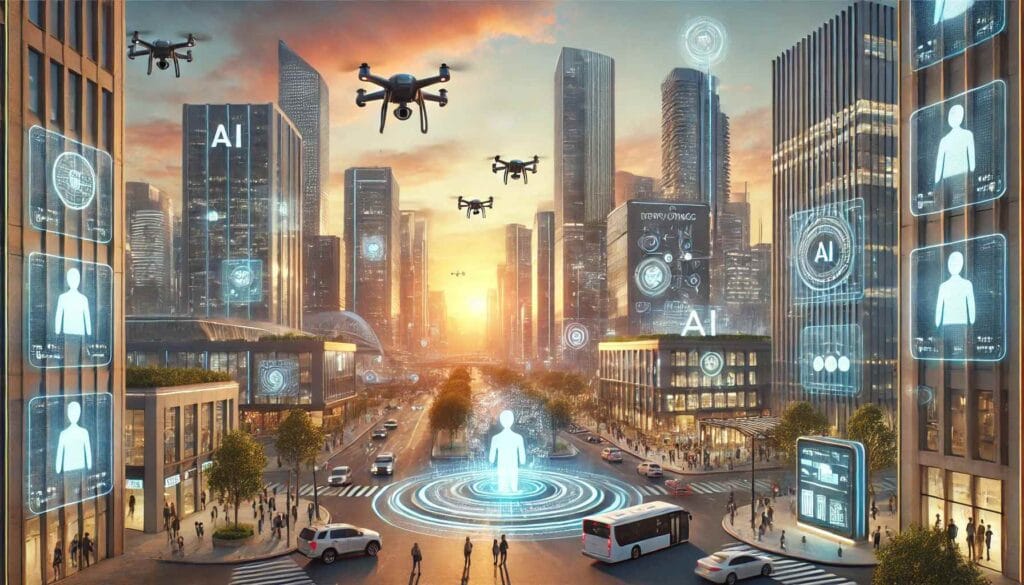AI and Its Impact on the Potential of a Third World War: Causes and Implications

Artificial Intelligence (AI) is rapidly advancing in a variety of fields, from healthcare to finance, and its implications for warfare are becoming increasingly significant. As nations race to develop cutting-edge AI technologies, there are growing concerns about the potential for AI to play a crucial role in the outbreak of a third world war. This article explores how AI could contribute to such a conflict and examines the underlying reasons that might lead to global warfare.
The Role of AI in Modern Warfare
AI has already begun to shape military strategy and operations. The integration of AI into defense systems allows for faster decision-making, more precise targeting, and improved surveillance. However, there are several ways AI could lead to conflict:
- Autonomous Weapons: One of the most significant concerns is the development of autonomous weapons systems. These AI-driven machines are capable of making decisions without human intervention, which could lead to unpredictable and uncontrollable situations. If nations begin to deploy autonomous weapons, it could lead to escalations in conflicts, as the systems may misinterpret situations or act in ways that provoke unintended consequences.
- Cyber Warfare: AI can be used to enhance cyber warfare capabilities. AI-powered algorithms can infiltrate and disrupt critical infrastructure, such as power grids, communication systems, and military installations. In the context of a global conflict, such cyberattacks could cripple entire nations, making them vulnerable to further attacks or coercion.
- AI in Surveillance and Espionage: AI technologies enable sophisticated surveillance and intelligence-gathering operations. Countries might use AI to monitor the activities of other nations, making it easier to identify perceived threats. However, the misuse of AI for espionage could heighten tensions and create distrust between nations, increasing the likelihood of conflict.
- AI in Command and Control: AI is increasingly being used in military command and control systems. The ability of AI to analyze large amounts of data quickly could allow military leaders to make faster decisions, potentially leading to preemptive strikes or miscalculations. This “faster than human” decision-making could be dangerous, especially in high-stress situations where time is of the essence.
Causes of a Potential Third World War
While AI could certainly play a role in exacerbating conflicts, it is essential to consider the underlying causes that might lead to a third world war:
- Geopolitical Tensions: As global powers continue to compete for resources, influence, and technological dominance, tensions between countries could escalate. AI, as a symbol of technological superiority, could become a focal point of competition. Nations might be willing to go to war over access to advanced AI technologies or to prevent adversaries from gaining a technological edge.
- Economic Inequality and Resource Scarcity: As the global population continues to grow, resources such as water, energy, and food may become increasingly scarce. AI could be used to manage or exploit these resources, leading to competition and potentially violent conflicts over access. Countries with advanced AI capabilities may use their technological advantage to dominate others in resource-rich regions.
- Nationalism and Populism: In recent years, nationalism and populism have gained traction in many countries. Leaders who prioritize national interests over international cooperation may be more inclined to use AI-driven military power to assert their dominance. This could lead to increased hostilities between nations, particularly if diplomacy breaks down.
- Environmental Challenges: Climate change and environmental degradation are creating new security threats. As countries face the consequences of rising sea levels, extreme weather events, and dwindling resources, AI could be used to respond to these challenges. However, the use of AI to address environmental issues could also lead to conflicts, particularly if nations disagree on the best course of action or compete for access to the technologies required to mitigate these challenges.
- Failure of Diplomacy: While diplomacy remains the best option for avoiding conflict, the increasing reliance on AI in military and political decision-making could lead to a breakdown in human-to-human communication. If nations become overly dependent on AI for strategic decisions, there is a risk that diplomatic channels will weaken, and misunderstandings could trigger a war.
Conclusion
While the potential for AI to contribute to a third world war is concerning, it is crucial to recognize that AI is just one factor in a complex geopolitical landscape. The rapid development of AI technologies can certainly increase the risk of conflict, especially if nations fail to regulate and cooperate on issues such as autonomous weapons and cyber warfare. However, the underlying causes of a third world war, such as geopolitical rivalry, resource scarcity, and the breakdown of diplomacy, remain the primary drivers of global conflict.
To prevent such a catastrophic event, global leaders must work together to ensure that AI is developed and used responsibly. This includes creating international agreements on the use of AI in warfare, fostering diplomatic relationships, and addressing the root causes of global instability. Only through cooperation and regulation can we hope to prevent AI from becoming a catalyst for the third world war.
Source : Medium.com




